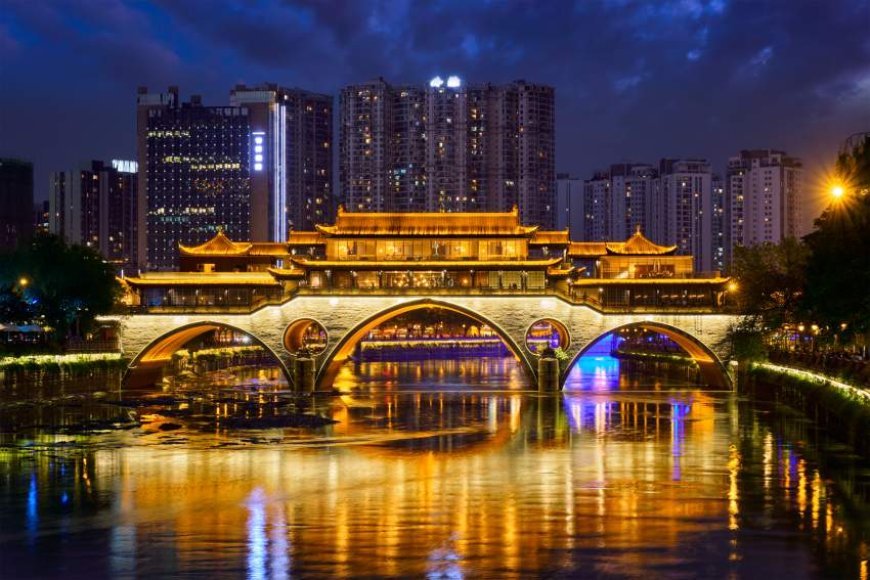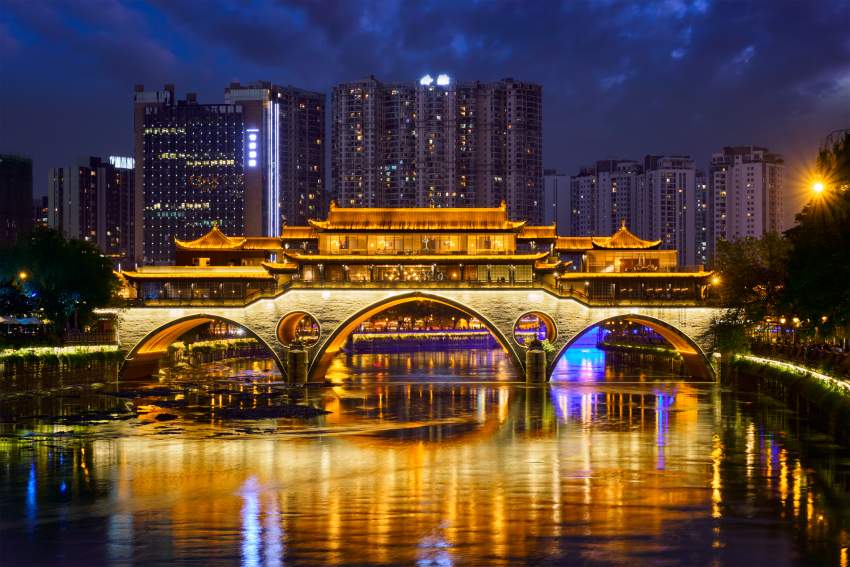Chengdu Unlocks Seamless Travel for Tourists with Global Card Transit Ahead of 2025 World Games


Chengdu, which is the capital of Sichuan province and will host the 2025 World Games, is now making a number of international visitor-focused infrastructure investments. The city is expanding smart transit and tourism facilities to increase usage of these services. Inbound tourists are using these services at an increasing rate, which helps the city earn revenue. The city recorded over 984,000 inbound tourist visits in the first half of 2025, which is a 51.5% year-on-year increase.
Chengdu’s transit networks now accept contactless fare payment on metro and bus systems. Chengdu now allows users to pay using internationally issued bank cards, including UnionPay, Visa, Mastercard, and American Express. These cards can be used to pay on Chengdu’s metro and bus transit networks as well. This initiative was started on July 28 and now makes it the 3rd city in mainland China to offer these services after Beijing and Shanghai. It is the first city to offer contactless payments on both bus and metro systems.
Metro and Bus Systems Enable Overseas Card Acceptance
Over 10,000 fare devices and more than 30 supporting systems across Chengdu Metro have been upgraded to accommodate contactless international card usage. At all 423 stations, travellers can tap their compatible cards at fare gates to enter and exit with ease. Additionally, single-journey tickets and day passes can now be purchased using the same bank cards at station vending machines.
Meanwhile, Chengdu Public Transport Group has extended this functionality to the city’s bus network, allowing passengers to use international cards across all routes. The requirement for cash, mobile apps, or digital wallets such as Alipay and WeChat Pay has been eliminated, simplifying public transport use for first-time travellers to China.
These enhancements have been tailored with consideration for the needs of tourists unfamiliar with Chinese mobile payment ecosystems. The process only requires that passengers ensure their cards support small-amount, password-free transactions and have sufficient balance or credit.
Bilingual Features Improve Navigation and Communication
To complement payment system upgrades, multilingual support has been significantly expanded. All metro trains and stations now feature bilingual (Chinese-English) signage and announcements. Real-time translation devices supporting over ten major global languages have been deployed at every metro station, enhancing clarity and reducing navigation stress for non-Mandarin speakers.
Additionally, Chengdu Metro has stationed bilingual volunteers at key locations such as major interchange stations, airports, and areas around sports venues. These volunteers are on hand to assist tourists with ticketing, directions, and general enquiries. The initiative has helped foster a more welcoming and accessible environment, particularly for spectators of the World Games.
World Games Boost Infrastructure and Tourism Economy
The 12th edition of the World Games, taking place from August 7 to 17, 2025, marks the first time the event is being held on the Chinese mainland. Considered the most significant multisport competition outside of the Olympics, it brings together athletes from over 100 countries competing in disciplines not featured in the Olympic Games.
The event has accelerated the city’s transformation into a world-class tourism destination. Chengdu’s tourism bureau has partnered with cultural and commercial sectors to launch special incentives for foreign visitors. Ticket stubs from World Games events now grant free or discounted access to select museums, scenic locations, and cultural exhibitions. Hotels and restaurants are also offering exclusive deals to ticket holders.
Among the participating institutions are 25 hotels, 140 restaurants, and 11 museums—all strategically located around the Games’ venues and tourist corridors. These promotions are designed to encourage extended stays, deeper engagement with local culture, and broader economic impact.
Duty-Free Shopping and Cultural Events Enhance Visitor Experience
Chengdu has also expanded its retail landscape by opening new duty-free shopping centres and increasing the number of tax-refund stores. These initiatives align with China’s national tourism development strategy and further incentivise spending among international tourists. According to the Ministry of Culture and Tourism, foreign spending on duty-free goods has consistently risen year-on-year and is expected to surge during the World Games period.
Cultural institutions have launched themed routes and immersive experiences that showcase Sichuan’s rich heritage. These include panda sanctuary tours, tea plantation visits, traditional Sichuan opera performances, and culinary workshops featuring iconic dishes like hotpot and mapo tofu. Events are designed to offer authentic and memorable experiences beyond the sporting venues.
Turning Visitor Flow Into Long-Term Momentum
Chengdu’s officials have emphasised the long-term vision behind these upgrades. With the influx of World Games spectators, a rare opportunity has arisen to convert short-term visitation into sustainable tourism growth. By building a more accessible, multilingual, and traveller-friendly ecosystem, Chengdu is laying the foundation for its future as a global tourism hub.
Chengdu’s airport and rail infrastructure have also been scaled up to handle increased traffic. Additional international flights and express train connections have been introduced, improving connectivity to cities across Asia, Europe, and the Middle East. Dynamic passenger monitoring systems have been implemented to manage transport flow during peak hours of the Games.
As China emerges from pandemic-era restrictions, the nation’s tourism rebound has been strongest in gateway cities like Chengdu. The local government’s investments in tourism infrastructure, digital transit, and global marketing reflect a nationwide push to recapture international travel momentum.
Conclusion
The transformation of Chengdu with consideration to the 2025 World Games highlights the possible evolution of tourism in China. Using modern infrastructure innovations in public transit, multilingual servicing, cultural programming, and traveller incentives, Chengdu has achieved a new milestone in the tourism and economic development blueprint of sporting events.
Now, guests coming from outside of China are greeted with modern infrastructure, a wealth of digital amenities, and convenient transportation, making the centre of Sichuan a must-visit.
The post Chengdu Unlocks Seamless Travel for Tourists with Global Card Transit Ahead of 2025 World Games appeared first on Travel And Tour World.






